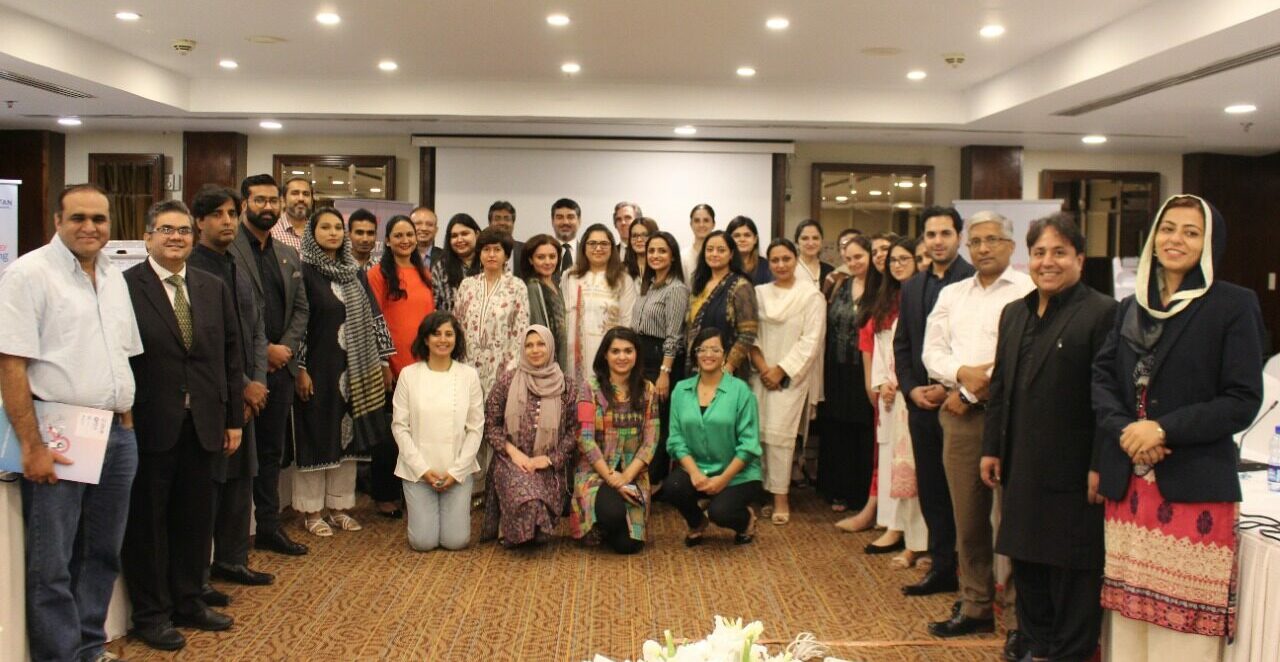
PPSE co-creating solutions for gender responsiveness in clean energy financing
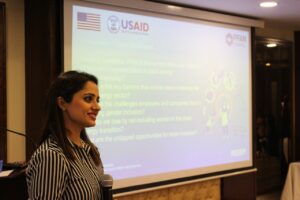
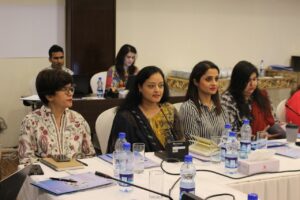
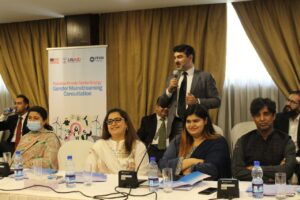
The USAID funded Pakistan Private Sector Energy Project (PPSE) organized a consultative dialogue on the gender and clean energy financing nexus on 14th September. PFAN’s Value Proposition catering to the gap between clean energy entrepreneurs and investment, is extending dialogue towards filling the gender inclusion gap in Pakistan’s clean energy sector. The workshop brought together representative from National Electric Regulatory Authority, State Bank of Pakistan, Private Power & Infrastructure Board, Engineering Development Board, K-Electric, private banks, financial institutions, as well as gender specialists.
Dialogues covered the themes of gender inclusion in clean energy project development, financing and public sector institutions regulating the clean energy sector. The percentage of women in the workforce in Pakistan is 25%, much lower to its South Asian counterparts such as Bangladesh and India, who have 31% and 36%, respectively. The connecting thread however, is that all countries have exceptionally low numbers of women in energy and even lower in clean energy.
Changing systemic and cultural gender biases in society and the energy sector means including more women in management and decision-making roles, and encouraging women to pursue technical clean energy skills by removing barriers from field work. It is a collective duty to ensure that the clean energy transition is not business as usual but is more inclusive, diverse, equitable and equal for all, which is why multiple stakeholders were involved.
The consultative workshop was inaugurated by Rabia Bukhari, Program Management Specialist, Energy, USAID. Currently, she is working as the private sector engagement lead for Energy Sector and also managing the Clean Energy Loan Guarantee project with the local commercial banks. She shared that gender mainstreaming and inclusion is an integral priority area in all facets of the sector and USAID is committed to furthering women’s empowerment in clean energy under a myriad of projects such as PPSE.
Project developers leading by example
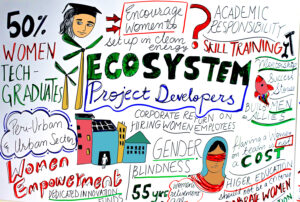
One of the recurrent challenge raised during the consultation was regarding lack of safety, security and facilities for female engineers, climate scientists and energy workers that deter their entrance and sustained work in the field. Participants acknowledged that while women graduate with engineering degrees, they are lost to the supply change to such structural challenges and cultural norms/expectations, such as marriage and child-rearing. However, participants noted that more women can be brought in to (clean) energy if due facilities and support are given to women as their male counterparts.
![]() Reon’s marketing, project management, human resources, delivery and engineering team are led by women. We have achieved this by becoming more sensitive about women’s requirements in the workforce such as transport and flexible work hours etc.
Reon’s marketing, project management, human resources, delivery and engineering team are led by women. We have achieved this by becoming more sensitive about women’s requirements in the workforce such as transport and flexible work hours etc. ![]()
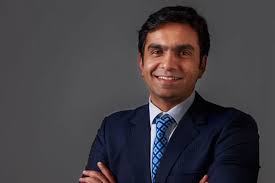 – Mujtaba Haider Khan, CEO, Reon Energy
– Mujtaba Haider Khan, CEO, Reon Energy
It was highlighted that K-Electric doubled women’s representation over the past two years, including inducting two women leaders in KE’s seven member C-Suite. During the PPSE consultation the need for a shift in corporate culture where investment in a more gender diverse team, management and leadership included, is seen as an asset and not a cost.
![]() Hiring more women is actually more cost effective. The biggest barrier for women is corporate laziness. You have to go and find the women, I assure you they are out there. Creating opportunities is not the only solution. We have to provide safety, mobility and infrastructure to address barriers.
Hiring more women is actually more cost effective. The biggest barrier for women is corporate laziness. You have to go and find the women, I assure you they are out there. Creating opportunities is not the only solution. We have to provide safety, mobility and infrastructure to address barriers. ![]()
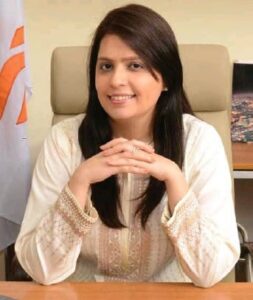 – Sadia Dada, Chief Marketing and Communications Officer, K-Electric
– Sadia Dada, Chief Marketing and Communications Officer, K-Electric
Climate Finance and Regulation: Untapped Potential for Removing Barriers
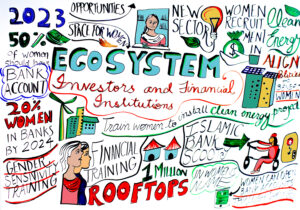
In order to bolster climate finance and women’s participation in the private sector, for large corporations, SMEs and startups, PPSE is committed to building meaningful connections with financial institutions, such as the State Bank of Pakistan, that is the Central Bank of Pakistan and regulator.
![]() SBP has developed a Gender Mainstreaming Policy, “Banking on Equality” aiming to reduce the gender gap in financial inclusion. Also, under this initiative women entrepreneurs in energy and as consumers of clean energy, such as solar panels, can avail concessional financing.
SBP has developed a Gender Mainstreaming Policy, “Banking on Equality” aiming to reduce the gender gap in financial inclusion. Also, under this initiative women entrepreneurs in energy and as consumers of clean energy, such as solar panels, can avail concessional financing.![]()
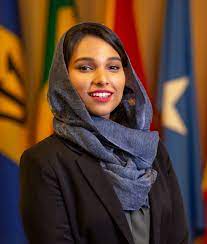 – Faiqa Naseem, Deputy Director at State Bank of Pakistan.
– Faiqa Naseem, Deputy Director at State Bank of Pakistan.
Unilever is a beneficiary of SBP’s green energy policy and commended the effort.
![]() Women think that the concessional banking process is very complicated because their past experiences have been tough but SBP has some very helpful schemes for women but women are simply not aware of them.
Women think that the concessional banking process is very complicated because their past experiences have been tough but SBP has some very helpful schemes for women but women are simply not aware of them. ![]()
 – Fatima Arshad, Sustainable Business and Communications Manager, Unilever Pakistan.
– Fatima Arshad, Sustainable Business and Communications Manager, Unilever Pakistan.
The need for more strategic partnerships and awareness around SBP’s women-centric financing facilities was a key takeaway from this consultation and one that PPSE will be including in its gender action plan, to support in strengthening the current ecosystem to be more gender responsive.
Government and Policy Gaps As Bedrock for Change
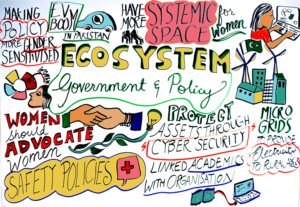
A glaring gap identified was on policy level that does not comprehensively tackle systemic barriers to women’s access in to the workforce, particularly in the power sector. Pakistan’s National Electric Power Regulatory Authority (NEPRA) is the apex authority regulating the electricity supply in the country and noted the need for more gender inclusion in its own body and subsidiaries.
![]() Gender inclusion at policy and practical level is a big challenge but one I’m confident can be resolved if all “parties” work together. All power companies have linked gender inclusion as a KPI for their evaluation and companies doing good on this metric will be rewarded and awareness spread.
Gender inclusion at policy and practical level is a big challenge but one I’m confident can be resolved if all “parties” work together. All power companies have linked gender inclusion as a KPI for their evaluation and companies doing good on this metric will be rewarded and awareness spread. ![]()
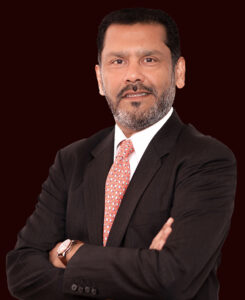 – Tauseef H. Farooqi, Chairman, NEPRA.
– Tauseef H. Farooqi, Chairman, NEPRA.
He cited greater gender inclusion in NEPRA sharing that they have hired 43 women in 25 years, and that under their initiative “Powering Prosperity,” 6000 jobs have been created for women.
![]() It is a good initiative of the government to have business incubation centres and has made universities more gender inclusive but the same needs to be done for the workforce. Nobody can be gender blind nowadays, especially not when it comes to our policies.
It is a good initiative of the government to have business incubation centres and has made universities more gender inclusive but the same needs to be done for the workforce. Nobody can be gender blind nowadays, especially not when it comes to our policies. ![]()
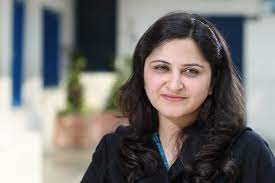 – Maria Umer, Project Lead, One Load Women Empowerment Project.
– Maria Umer, Project Lead, One Load Women Empowerment Project.
Way Forward for Inclusion and Equity
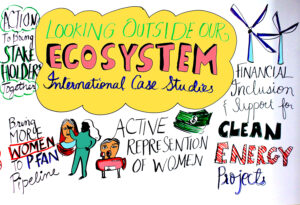
PFAN, through its global network and platform believe in the power of cross-pollination and the innovative solutions that come from learning across contexts and continents. This is why PFAN Global has initiated its Gender Focal Points regionally to build more climate resilient technologies and solutions across the gender spectrum within regions and countries. PFAN through its regional focus will be working closely more closely with cross-country learning to ensure sharing support and best practices across countries.
Ammar Yasser, Chief of Party, PPSE elaborated that, going forward, PPSE will be actively looking into women led businesses in clean energy arena to be made part of it’s pipeline so that its services leverage more inclusion of women into clean energy sector. PPSE will work with State Bank of Pakistan and other financial institution for better access to finance for women led businesses focusing on clean energy investments. Further, it will work with its public sector partners to remove barriers to entry and participation for women in the clean energy sector. This consultation was an initiation to connect with industry leaders, finance experts, gender specialists and government representatives to develop a collective ecosystem towards gender responsive commitment in various sectors; while also gathering insights in to sectoral gaps.
The consultation was led by Fiza Farhan, member of the UN Secretary-General’s panel on Women’s Economic Empowerment and Chairperson to Chief Minister Punjab’s Task Force on Women’s Empowerment. Fiza is currently consulting with PFAN PPSE to formulate a gender action plan for the project alongside Mavra Bari, PPSE Communications and M&E Expert/Gender Focal Point.
Pakistan Private Sector Energy is a USAID funded project being implemented by PFAN and UNIDO.
Keep watching this space for updates and please drop us a line if you are interested to share your insights and experiences: Mavra.Bari@pfan.net